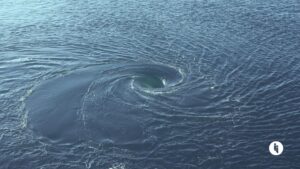Canada’s new PM, Mark Carney, just took office facing economic turmoil, U.S. tariffs, and Trump’s talk of a 51st state. His first move? Looking beyond America.
- Still, let’s first start at home
Carney, the highly regarded former central banker for Canada (and England!), secured the ruling Liberal Party’s leadership and formally took the reins from Justin Trudeau on Friday. He now has to call elections by October, though will likely pull the trigger sooner:
- Some lawmakers argue he’s got no mandate until he goes to an election, and
- Others were already threatening to force a vote after his party’s decade in power
- But while any race will still be tough as voters assess his party’s record on the economy, housing, immigration, and beyond, Carney still stands a real chance partly due to…
But while any race will still be tough as voters assess his party’s record on the economy, housing, immigration, and beyond, Carney still stands a real chance partly due to…
Stay on top of your world from inside your inbox.
Subscribe for free today and receive way much more insights.
Trusted by 151,000+ subscribers
No spam. No noise. Unsubscribe any time.
2. What’s next for Canada abroad
Specifically, Canada’s conservative opposition has now lost a 30-point lead, with polls calling this a close race and even placing Carney ahead as preferred prime minister.
And the trigger seems to have been less any change of leader in Canada, and more the change of leader in the US, with Canadians rallying around the flag as Trump 2.0 brings:
- a) blanket tariffs that put hundreds of thousands of Canadian jobs at risk
- b) talk of somehow making Canada into America’s 51st state, both leading to
- c) a chilling sense that Canada’s ally, trade partner, and neighbour can’t be trusted.
And so it’s with that in mind that Prime Minister Carney’s first few days have focussed on…
3. Options
Canada’s prosperity and security are closely intertwined with its proximity to the US, with the world’s largest economy and military. So sure, there’s a certain logic in diversifying that, particularly as trust collapses.
That’s why, days after taking the oath of office, Carney was on the prime ministerial jet heading not south to DC or Mar-a-Lago, but across the Atlantic to London and Paris.
And while he highlighted shared heritage and values at each stop, Carney also has the world’s third-largest proven oil reserves; the world’s largest uranium deposits; critical minerals like graphite, lithium, and cobalt; and so on. That all gives Carney cards.
But unlike most other world leaders, 75% of his exports still head to the US. And that level of integration with — and reliance on — the US makes diversifying away fraught. If you’ll forgive the flawed analogy, it’s almost like pivoting your solar panels away from the sun towards distant Proxima Centauri instead. But Trump’s tariffs mean Carney must try.
INTRIGUE’S TAKE
There was an interesting moment in Carney’s London press conference last night, when reporters pressed him on whether the UK’s Starmer or France’s Macron offered any help in dealing with Trump 2.0. Carney’s answer? Canada doesn’t need saving.
That response suggests his trip abroad was about signalling both:
- a) to folks back home, his ability to lead, and
- b) to leaders abroad, a readiness for whatever world order Trump 2.0 brings.
But keep an eye out for more subtle signals ahead: like other US allies, Canada has partly been willing and able to stand its ground on all kinds of issues because it’s felt secure within the international system and its underlying US guarantees.
But as Canada revisits its assumptions about the US, it will (like others) revisit its own stances, whether on trade, China, or beyond. Welcome to the multipolar world.
Also worth noting:
- Interestingly, Carney has also included a stop he’s framed as asserting Canada’s sovereignty, landing today (Tuesday) in Canada’s city of Iqaluit up in the Arctic, where the US, Russia, and others are already in open competition.
- Carney has invited Ukraine’s Zelensky to Canada’s G7 summit in June.
- The latest OECD report just warned that the Canada-US-Mexico trade war could slow growth forecasts and increase inflation for all three nations.





